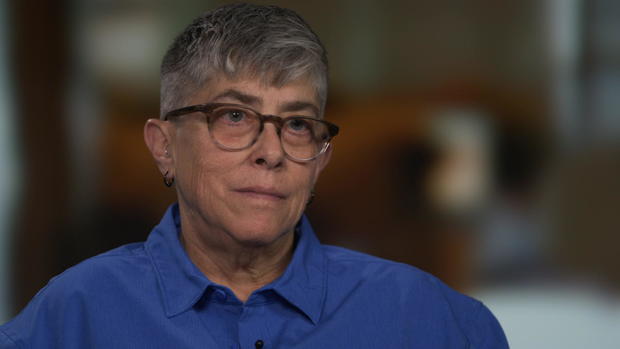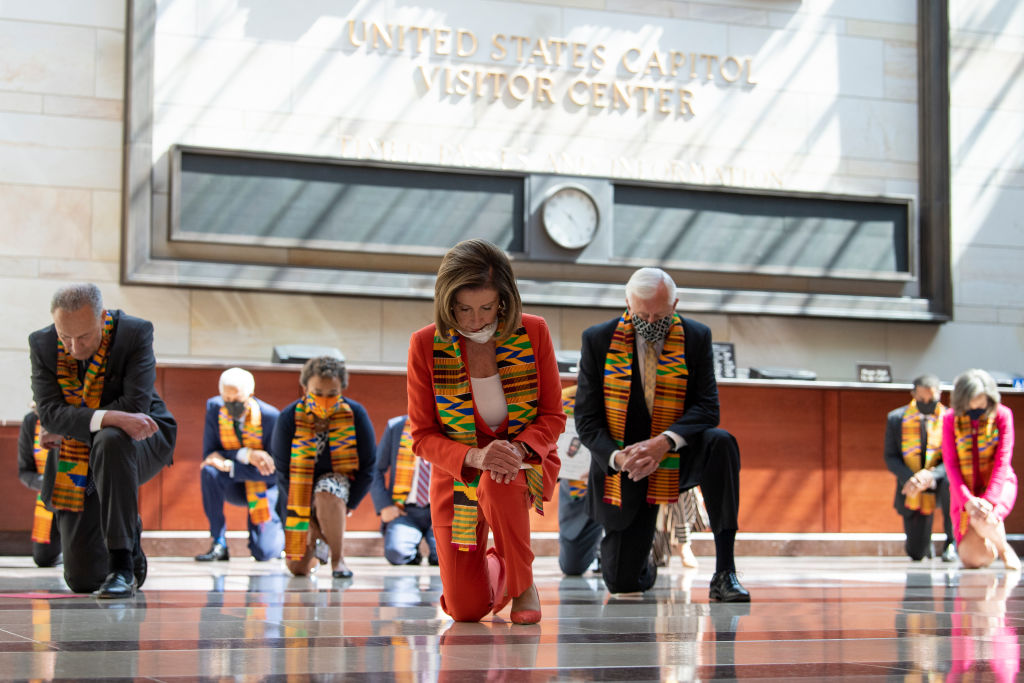LGBTQ+ veterans file civil rights suit against Pentagon over discriminatory discharges
A group of LGBTQ+ veterans who were kicked out of the military because of their sexual orientation filed a federal civil rights suit on Tuesday over the Defense Department's failure to grant them honorable discharges or remove biased language specifying their sexuality from their service records following the repeal of "don't ask, don't tell" in 2010.
The class action lawsuit, which was filed in the U.S. District Court for the Northern District of California on behalf of five veterans, claims the Pentagon's failure to correct this "ongoing discrimination" represents a violation of constitutional rights.
"Requiring LGBTQ+ veterans to first bear the stigma and discriminatory effects of carrying indicators of sexual orientation on their [discharge papers] and then navigate a broken record correction process to seek resolution violates their constitutional rights to equal protection, informational privacy, property, and due process protected by the Fourteenth and Fifth Amendments to the U.S. Constitution," the suit says.
It's been more than a decade since the military lifted its longstanding ban on gay and lesbian troops. But thousands of those discharged under past discriminatory policies like "don't ask, don't tell" are still carrying less than honorable discharges today, depriving them of the full spectrum of benefits including VA loan programs, college tuition assistance, health care and some jobs.
Over the past six months, a CBS News investigation documented the Pentagon's long-running failure to restore honor to the service records of thousands of veterans who were deprived of veterans benefits after their military careers were cut short. The reports documented the way these veterans' often traumatic separation from the military shaped the course of their lives.
A Pentagon spokesperson told CBS News the department does not comment on pending litigation, but in an earlier statement said that the military has an existing process consisting of a short two-page application for veterans seeking a change to their discharge. The department said "legal representation is not required to apply for a discharge review" and that the discharge review boards "continue to strive to finalize 90% of all cases within 10 months as required by statute."
"Forced to relive the trauma"
But the lawsuit, prepared by the Impact Fund, Legal Aid at Work and King and Spalding LLP, lays out what plaintiffs allege is a "constitutionally inadequate" response.
"The process places the burden on individual veterans to spend months or years obtaining old personnel records before they can even file the applications that will then take months or years to be processed, on top of the years since their discriminatory discharges," the complaint alleges. "The application process is opaque; many veterans must hire lawyers to assist them. Individual veterans are forced to relive the trauma of their discharge, carrying the burden of proving discrimination to the very institution that discriminated against them."
The lawsuit is not seeking monetary damages. Instead, it asks the Defense Department to systematically upgrade these veterans' discharge papers, known as DD-214s, and remove all indicators of sexual orientation, instead of placing the burden on the veteran to apply themselves. A DD-214 is so important to a veteran's post-military life that it comes with a warning: "This is an important record. Safeguard it."
Veterans aren't just asked for their DD-214 when accessing their VA benefits, but also when applying for a job, a loan or even an apartment.
"Every time they have to show that document they are essentially outed involuntarily," said Jocelyn Larkin, one of the lawyers representing the plaintiffs.
"This case is not about damages," Larkin said. "This case is about simply changing that piece of paper because the effect of changing that piece of paper is so incredibly consequential for our clients."
While the full scope of past discrimination against gay and lesbian service members remains unknown, Larkin believes the lawsuit could at least help some 35,000 veterans already identified by a Defense Department Freedom of Information Act request and first reported by CBS News in June.
The figures revealed at least 35,000 service members from 1980 to 2011 "received a discharge or separation because of real or perceived homosexuality, homosexual conduct, sexual perversion, or any other related reason." The true figure could be significantly higher. According to the most recent data available from the Pentagon, just 1,375 veterans have been granted relief in the form of a discharge upgrade or correction to their record.
"I was willing to serve and die for my country"
Sherrill Farrell is one of five plaintiffs from across three service branches bringing the lawsuit. The 62-year-old from McQueeney, Texas, joined the Navy in 1985, following in the footsteps of her father and grandfather who served in the Air Force and Army respectively. Having grown up on military bases all over the world, Farrell saw firsthand the opportunities the military could provide and planned to make a career in the Navy.
But soon after arriving at her first duty station, Farrell says a casual conversation about gay clubs with a bunkmate landed her in front of Navy investigators. Weeks later she was kicked out and handed her discharge papers, a DD-214. Despite otherwise positive performance reviews, the military discharged her "under other than honorable conditions" due to "homosexuality."
"It hurt, because my country's telling me I'm not good enough to serve because of who I love, not because of anything else, just because of who I love," Farrell said.
Farrell is hopeful she'll get the discharge she wants, but after 37 years it's as much a part of her story as any honorable discharge she may one day get.
"My plan is once they change my discharge, I'm going to frame both of those DD-214s and hang them up because I want the world to know that — or the country to know — that I was willing to serve and die for my country," Farrell said. "The kids today don't know. The ones that have the benefits, they don't know what some of us went through for them to have these benefits. And it's time for them to know."
In a statement to CBS News in February, the Defense Department said it "has conducted several outreach campaigns to inform all veterans who believe they have suffered an error or injustice." The department also referred us to a statement from Secretary of Defense Lloyd Austin on the 10th anniversary of "don't ask, don't tell," acknowledging there is "more work to do, particularly as it relates to righting old wrongs." Austin also encouraged those who believe they were unjustly discharged to contact their military department's board for correction of military records or discharge review board.







